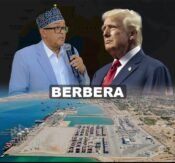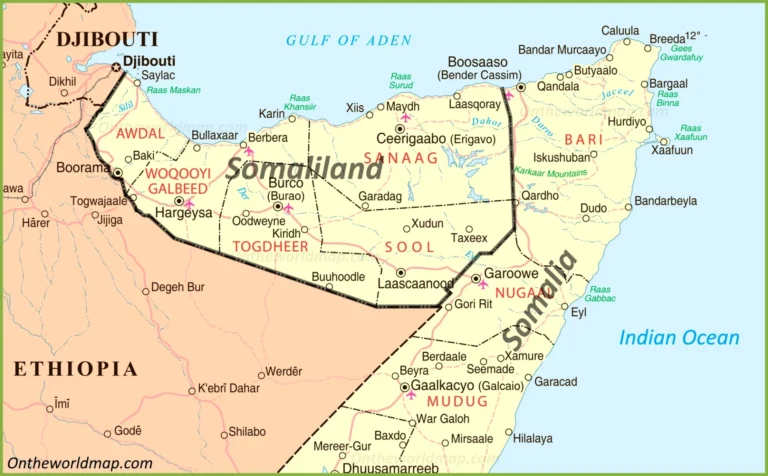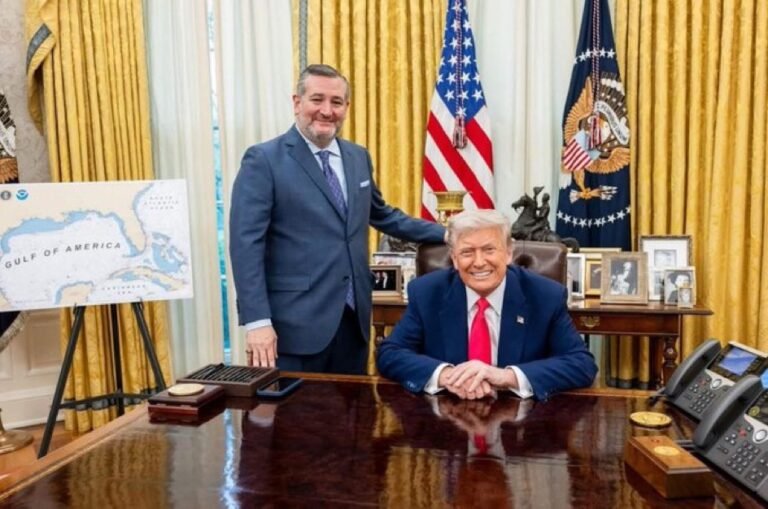
By Prof. Nassir Hussein Kahin, Executive Managing Editor.
As Somaliland’s President Abdirahman Mohamed Abdillahi “Irro” prepares for a highly anticipated meeting with Ethiopian Prime Minister Abiy Ahmed, a new and transformative dynamic has emerged—one that demands strategic recalibration and serious consideration. The recent eight-day visit by senior U.S. military and diplomatic officials including the Commander of U.S. AFRICOM,General Michael Langley and U.S. Ambassador to Somalia, Richard Riley, by the signing of an agreement granting the United States exclusive operational access to Berbera Port, marks a dramatic turning point in Somaliland’s international standing.
In light of this, it would be both premature and strategically unwise for President Irro to proceed hastily with any agreement—or even a meeting—regarding Ethiopia’s proposed revival of last years MoU lease of naval access in exchange for diplomatic recognition.
Ethiopia’s intentions, while presented as cooperative, remain ambiguous and are deeply rooted in a long-standing, non-negotiable national ambition: to secure permanent access to the Red Sea and to project maritime power from a territory it does not control.
This ambition, unlike Somaliland’s pursuit of recognition, is not a product of current political pressures—it is a generational objective that spans Ethiopian regimes of every stripe. From Emperor Tewodros II to Haile Selassie, from the Derg to the Prosperity Party, Ethiopia has consistently sought a maritime outlet as a matter of national survival and pride. As history shows with the federation and later annexation of Eritrea, Ethiopia is capable of leveraging transitional agreements into permanent control—often to the long-term detriment of its neighbors.
The controversial MoU signed in January 2024 by former President Muse Bihi, granting Ethiopia access to the Red Sea and a military base for 50 years in exchange for recognition, was viewed by many in Somaliland as a desperate attempt to force international legitimacy by offering up a strategic asset. But that was before Washington’s dramatic reentry into the Horn of Africa’s geopolitics.
Now, the United States has sent a powerful signal: it intends to reestablish itself as a stabilizing superpower in the Red Sea region. Its deepening engagement with Somaliland is not symbolic—it is strategic. The eight-day stay by U.S. officials, including full technical and military assessments of Berbera, followed by the signing of an exclusive security and port access agreement, affirms Berbera’s rising profile as a centerpiece in America’s counterbalance to growing Chinese and Russian influence in the region.
This shift gives Somaliland an historic opportunity—one that should not be squandered for short-term recognition from a regional actor with expansionist instincts. Instead, Somaliland’s leadership should seize this moment to pivot toward deeper, long-term partnerships with the United States and other Western allies. Recognition should now be pursued not through transactional exchanges with regional powers, but through principled engagement with the international community led by Washington.
The timing is critical. Following their meetings in Hargeisa, U.S. officials held direct talks with Prime Minister Abiy in Addis Ababa and are now reportedly engaged in shuttle diplomacy across the region to reassure key African partners that the United States is back in the Red Sea. These efforts are not merely about Somaliland—they are part of a broader American strategy to fill the vacuum created by its decades-long absence in the Horn, which has been exploited by Beijing in Djibouti and now eyed by Moscow in Berbera.
This gives Somaliland unprecedented leverage—if used wisely. The U.S. presence deters potential aggression, guarantees international scrutiny, and opens the path for diplomatic recognition from Washington itself. For the first time in decades, Somaliland is no longer an isolated actor pleading for legitimacy. It is now a key node in a strategic realignment of great power competition in the Red Sea.
President Irro must read this geopolitical moment with clarity and vision. He should seriously consider postponing his meeting with Abiy Ahmed. Entering negotiations with Ethiopia now, under pressure and in the shadows of a still-unsettled MoU, would undercut the new U.S. partnership and potentially derail momentum toward more sustainable international support —especially in a moment when the U.S. has just reestablished a military footprint in Somaliland.
Somaliland should not be drawn into regional power struggles fueled by Ethiopian ambitions or counter-alliances formed by Egypt, Eritrea, Djibouti, Turkey, and Somalia. Instead, it should align with stable and principled actors capable of offering diplomatic recognition, security guarantees, and economic development without territorial entanglements or expansionist motives.
President Irro’s administration must use the U.S. reengagement to elevate Somaliland’s case for recognition on the global stage. America’s renewed interest in Berbera offers more than security—it offers Somaliland the chance to emerge as a critical partner in preserving freedom of navigation, regional stability, and counterterrorism across the Red Sea and Gulf of Aden.
But this opportunity requires discipline, restraint, and strategic patience. Somaliland must not rush into entangling agreements with regional powers just for the emotional high of symbolic recognition. Instead, it must build a foundation for enduring legitimacy rooted in alliances with nations that respect sovereignty, promote democracy, and share Somaliland’s long-term vision for peace and stability.
In short: Somaliland no longer needs to settle. It now has choices. And the wise choice today is to stand firm, postpone the meeting with Abiy Ahmed, and focus on nurturing the U.S. partnership into full recognition.
History has opened a rare window. Somaliland must not let it close. Now is the time for statecraft and President Irro, a seasoned diplomat knows it.


